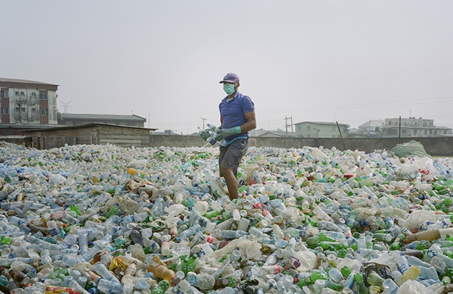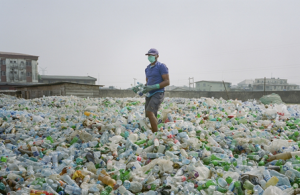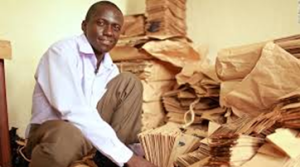Around the world, uncollected trash is a very big problem and Africa is not left out in this. However, in the midst of this big problem, waste collection and recycling is a multi-billion dollar industry in developed countries. Africa as well, is picking up in this waste to wealth game, in this piece we highlight some of the players changing the game and setting the pace of recycling in Africa
According to the World Bank, Africa currently produces about 70 million tons of waste every year. A few smart Africans are already building wealth from waste and creating jobs for hundreds of Africans. The success of these inspiring entrepreneurs proves that there can be profitable business ideas in very unlikely and niche parts of African society. With its rapid urbanization and growing economies, waste production in Africa will exceed 160 million tons by the year 2025.
As the income and spending power of the average African continues to rise, more goods will be consumed leading to even more waste. Recent estimates place the average African individual waste generation at half a kilogram and businesses producing up to two kilograms of waste every single day! However, the amount of waste generated on the continent is estimated to grow very fast over the coming years.
With several opportunities ranging from waste collection, inorganic waste processing and organic waste processing, these recycling movements have shown the huge potential in Africa’s large and growing waste market. We highlight some of these movements leading the waste to wealth revolution in Africa, changing the game and setting the pace of recycling in Africa.
Collect-a-Can (Pty) Ltd is a South Africa based can recovery and recycling organization. It is a joint venture between Arcelor Mittal South Africa and Nampak.
For over two decades, Collect-a-Can has been at the forefront of minimizing the negative impact of used metal cans on the environment through the recovery of all types of used metal cans.
They are a recovery as opposed to a profit-driven company, and have proven that they are self-sustainable by managing their operations and cost structures at optimum levels for over 22 years, assuring the respective southern African governments, environmentalists and the public of their long-term stability.
Since Collect-a-Can started, southern Africa’s used can recovery rate has improved from 18% to 72%. Currently, metal cans form less than 1% of the total rubbish that ends up in landfills due to their value and recyclability. Collect-a-Can prides itself as a community based initiative. They work actively within various communities, encouraging citizens from all walks of life to assist them in their can collecting efforts.Their ‘Cash for Cans’ initiative encourages cans to be collected and sold to Collect-a-Can for cash, because they know that recovery and recycling aids job creation in many communities and creates an additional source of income for schools, non-governmental organizations, and other community groups. This initiative safeguards the livelihood of thousands of unemployed South Africans and allows community development across the southern African region.
Andrew Mupuya founded YELI, Uganda’s first paper bag production company. He got the idea to start this business in 2008, when the Ugandan government put a ban on the use of plastic bags in order to reduce the environmental damage it was causing.
To start the paper production business on a small scale, Andrew figured out he needed about 36,000 Ugandan shillings ($14). He raised $11 from selling 70 kilos of used plastic bottles and then borrowed the remaining $3 from his school teacher.
Andrew taught himself to make paper bags by watching videos on the internet. Today, Andrew’s paper bag company now employs over 20 people and produces more than 20,000 paper bags every week. All the bags are produced by hand as Andrew cannot yet afford a machine.
His long list of clients includes restaurants, retail stores, supermarkets, medical centers, as well as multinational companies like Samsung. His company, YELI, has made about 1,000 niche bags for the local stores of the electronics company.
Sources:
http://www.smallstarter.com/get-inspired/africa-top-5-entrepreneurs-in-the-waste-recycling-business
http://www.collectacan.co.za/index.php/about-us






